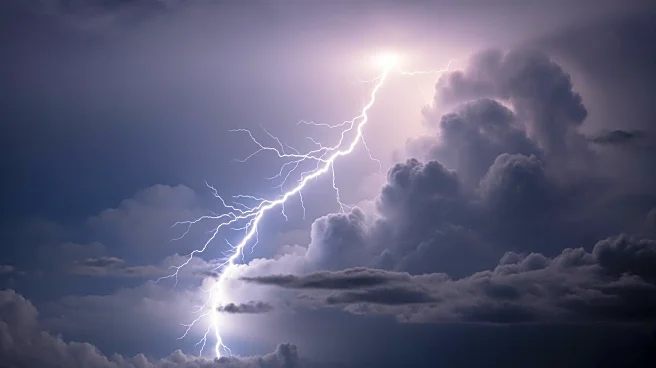What's Happening?
Hezbollah is actively rebuilding its military and economic infrastructure following significant losses in last year's conflict with Israel. This development has raised concerns among Israeli security officials
and international observers. Recent intelligence reports indicate an increase in Hezbollah's rearmament activities in southern Lebanon, violating existing agreements between Jerusalem and Beirut. The Israeli Defense Forces (IDF) have responded with intensified strikes on Hezbollah targets, including operational sites, weapons depots, and rocket production facilities. These actions are part of Israel's strategy to prevent Hezbollah from reestablishing its presence near the border. The IDF has issued evacuation notices to Lebanese civilians in affected areas, highlighting the group's tactic of placing weapons among civilian homes.
Why It's Important?
The ongoing conflict between Israel and Hezbollah has significant implications for regional stability and international relations. Hezbollah's rearmament efforts, despite interdiction attempts by Israel and the Lebanese army, pose a direct threat to Israeli security. The group's adaptation to produce low-cost, easily assembled weapons within Beirut complicates interception efforts by the IDF. Israel's military strategy aims to disrupt Hezbollah's buildup without escalating to full-scale war, balancing military action with diplomatic considerations. The situation remains volatile, with potential for further escalation if Hezbollah retaliates, which could lead to a new cycle of confrontation.
What's Next?
Israeli military and intelligence branches have developed a comprehensive strike plan to weaken Hezbollah, which could be activated by political decision or if Hezbollah changes the rules of engagement. The plan includes potential strikes in Beirut, where Hezbollah stores weapons, although Israel has not targeted the capital so far. Israeli officials are divided on whether to escalate operations, weighing the benefits of ongoing international support against the risks of diplomatic backlash. The situation remains tense, with the possibility of further military action if Hezbollah retaliates.
Beyond the Headlines
The conflict between Israel and Hezbollah highlights broader geopolitical tensions in the region, including the influence of Iran and Syria. Hezbollah's ability to adapt its military strategy reflects lessons learned from previous conflicts, posing new challenges for Israeli defense forces. The use of civilian areas for military purposes raises ethical concerns and complicates military operations. The situation underscores the complexity of balancing military objectives with humanitarian considerations in conflict zones.












